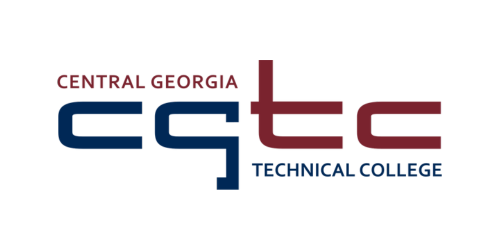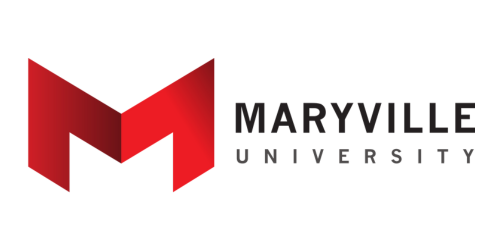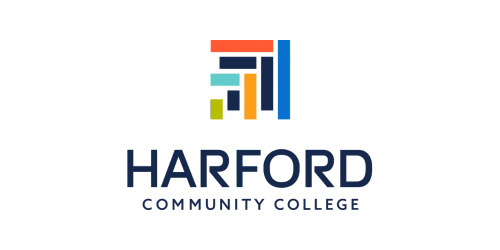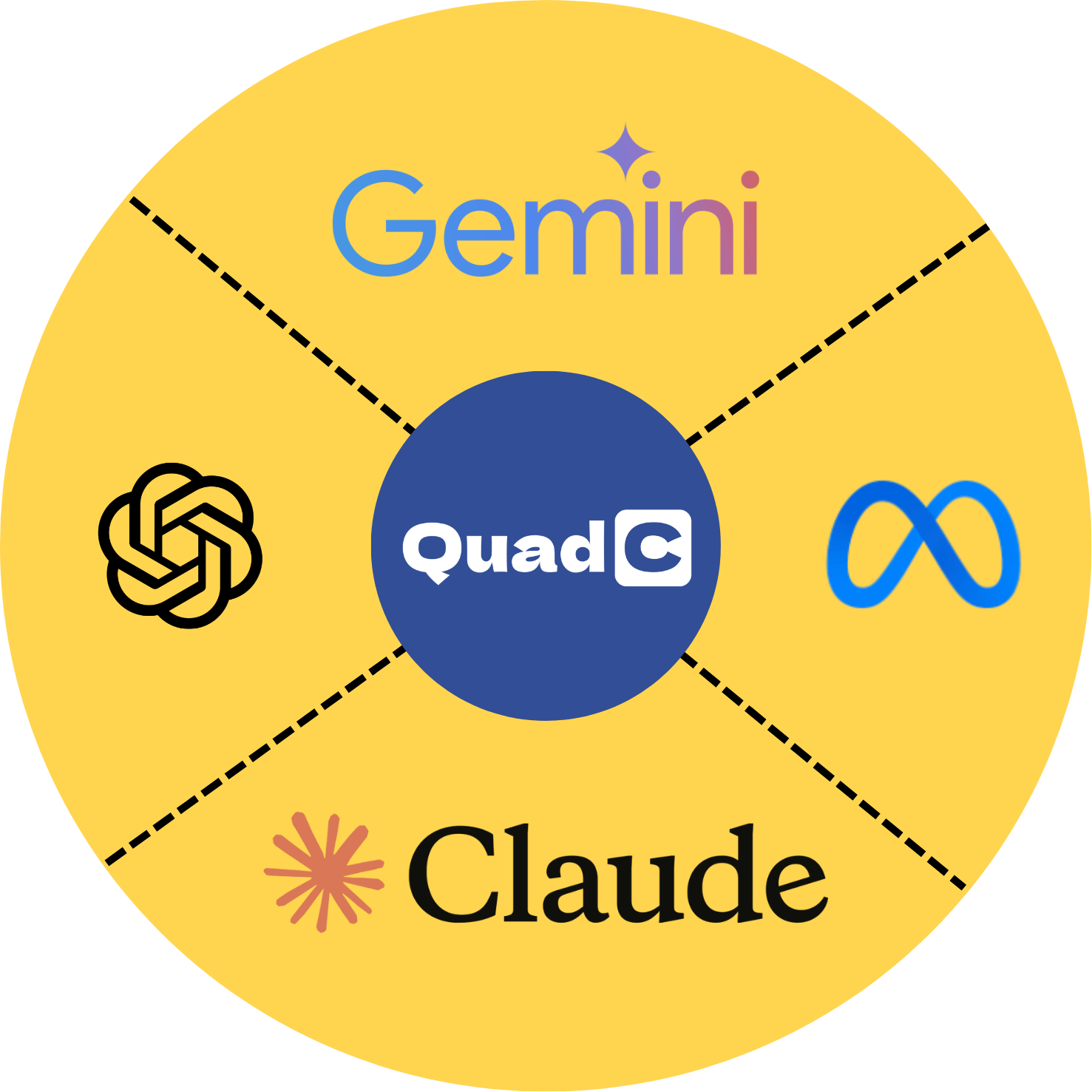QuadC AI vs ChatGPT Edu
ChatGPT Edu supports students with study tools like practice problems and guided explanations. QuadC AI does all of that, and adds the institutional features that education really needs, LMS integration, educator workflows, and administrative oversight.














%20logo.png?width=500&height=250&name=Abraham%20Baldwin%20Agricultural%20College%20(ABAC)%20logo.png)


.png?width=500&height=250&name=maryville%20university%20logo%20(2).png)









.png?width=500&height=250&name=university%20of%20south%20carolina%20logo%20(2).png)








88%
of Students Use QuadC AI for Authentic Learning
30%
Increase in Student Support Coverage
9%
Higher Persistence Rate
6%
Higher Course Pass Rate
Which AI platform is better for education?
Feature |
QuadC AI |
ChatGPT Edu (OpenAI) |
|
AI Model |
Multiple LLMs (GPT, Gemini, Claude, or your institution’s own model) |
OpenAI Models (GPT) |
|
Use Case |
Education-focused |
General-purpose AI with Study Mode for individual learners |
|
Tools |
Structured educational tools prebuilt into the platform for homework, quizzes, lesson plans, and more, with optional prompt input |
Study Mode adds guided explanations, practice problems, and adjustable answers, but remains prompt-based |
|
LMS Integration |
LMS-ready (Brightspace D2L, Canvas, Moodle, Blackboard) |
Requires manual setup or API work |
|
Human-AI Integration |
Built-in workflows that connect students to live tutors when needed |
Not available |
|
Licensing |
Shared seat model for flexible campus-wide use |
Per-user |
|
Student Centric Reporting |
Sentiment analysis, abuse detection and messages reporting |
Not available |
|
Reporting & Admin |
Integrated analytics with visibility for admins and educators |
Admin console with ChatGPT usage dashboard |
|
Privacy & Safety |
Built-in controls with education-specific safeguards |
Enterprise-grade controls designed for general use across industries |
Find out how QuadC can help your institution improve student retention.
With customizable configurations and a superior user experience, QuadC will seamlessly integrate with all of your institution's existing tools.
Multiple models, not just one
With QuadC AI, institutions aren’t locked into a single model. You can enable multiple LLMs, including GPT-4.1, Gemini, Claude, or even your institution’s own AI models. This gives students and educators more flexibility to compare outputs and find what works best for their needs.
ChatGPT Edu only supports OpenAI's models and offers limited visibility into how those models evolve over time.


Purpose-built for education
ChatGPT Edu is a capable AI assistant with broad applications, including support for student study. But it wasn’t built with education at its core. Educators and students often have to craft prompts and adapt it for academic settings.
QuadC AI, on the other hand, is made for the classroom. It includes ready-to-use tools for tutoring, study support, writing, feedback, and more. Students don’t need to figure out how to make AI useful—it’s already aligned with what they need to succeed in school and higher education. Educators can trust that the responses support learning outcomes.
Built-in educational support tools
ChatGPT Edu’s Study Mode gives students a way to adjust explanations (simple or detailed), practice problems, and review step-by-step answers. This makes it a useful tool for independent learning.
QuadC AI, however, includes a full suite of tools designed for both students and educators, with direct alignment to curriculum and classroom needs. Each tool is built to fit into real academic workflows, not just self-study. Examples include:
Homework Help
Students can upload assignments or ask questions directly from their coursework. The AI breaks problems into steps, explains the reasoning, and gives guided support without handing over the answer.
Interactive Quizzes
QuadC AI can create self-check quizzes based on class content or study materials, helping students test their understanding and get feedback in real time.
Lesson Planning
QuadC AI offers lesson outlines, reading materials, and question worksheets aligned to learning outcomes.
Essay Feedback
Instead of rewriting or generating essays, QuadC AI gives targeted suggestions on clarity, structure, grammar, and argument strength, helping students improve their own work. Feedback is contextual and tied to academic rubrics.
Embeddable AI Bots
Course-specific bots can be embedded right inside your LMS (Brightspace, Canvas, Moodle, Blackboard). They’re built with educators’ materials (PDFs, lecture slides, YouTube videos), and can answer student questions without leaving the course environment.
1:1 Human Tutoring Integration
Students who need more help can connect directly to live tutors from inside the platform. This handoff from AI to human support gives learners the best of both worlds, immediate help when they need it, and expert guidance when it matters most.
Designed for integration
QuadC AI works directly inside popular learning platforms like Brightspace D2L, Canvas, and Moodle. Institutions don’t need custom development to embed it. ChatGPT Edu, on the other hand, requires additional setup to integrate with LMS environments.


Flexible licensing, easier rollout
ChatGPT Edu uses a per-user model, which can be limiting when institutions want to scale access across campuses. QuadC AI uses a shared seat model, allowing for more flexible deployment that fits the academic calendar and diverse student needs.
Bottom line
ChatGPT Edu supports individual learners with practice and review tools. For institutions that need structured academic workflows, LMS integration, faculty support, and administrative oversight, QuadC AI remains the stronger fit. It was designed for education from the start, not just adapted for it.
Ready to bring AI that actually fits education?
QuadC AI is already helping colleges and universities provide smarter, faster, and more accessible support to their students, without the setup headaches or prompt engineering required by general-purpose tools.
Let’s talk about how QuadC AI can give your students better learning tools.